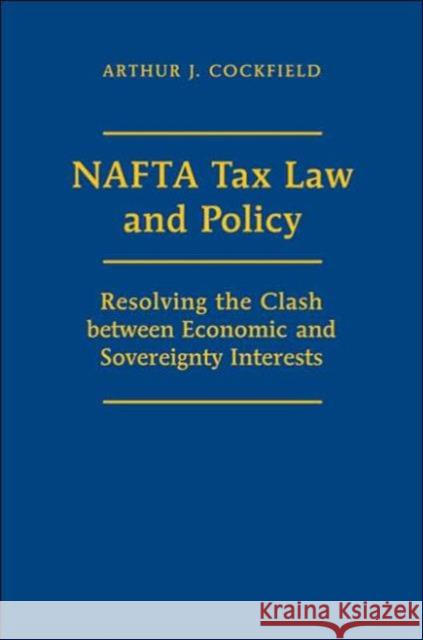NAFTA Tax Law and Policy: Resolving the Clash Between Economic and Sovereignty Interests » książka
NAFTA Tax Law and Policy: Resolving the Clash Between Economic and Sovereignty Interests
ISBN-13: 9780802035813 / Angielski / Twarda / 2005 / 315 str.
Under the North American Free Trade Agreement (NAFTA), Canada, the United States, and Mexico continue to maintain their own distinct tax regimes, jealously guarding their sovereign right to do so. At times, these different tax systems harm the economic welfare of the trade bloc by imposing barriers to cross-border flows of capital. In NAFTA Tax Law and Policy, Arthur J. Cockfield analyzes these different tax systems and proposes a number of recommendations to reduce the harm caused by these barriers.Cockfield argues that it is unrealistic to expect the NAFTA countries to negotiate comprehensive reform efforts such as full-fledged tax harmonization. Rather, a strategy of heightened multilateral tax coordination is the appropriate solution as it permits the countries to maintain national tax differences, but strives to smooth over many of the problems created by the interaction of the tax regimes. The NAFTA countries should promote binding arbitration for transfer pricing disputes, multilateral tax treaty negotiations, the elimination of parent/subsidiary dividend withholding taxes, and enhanced administrative cooperation to reduce tax compliance costs for multinational firms. Only then, can NAFTA function in the way it was designed to.











